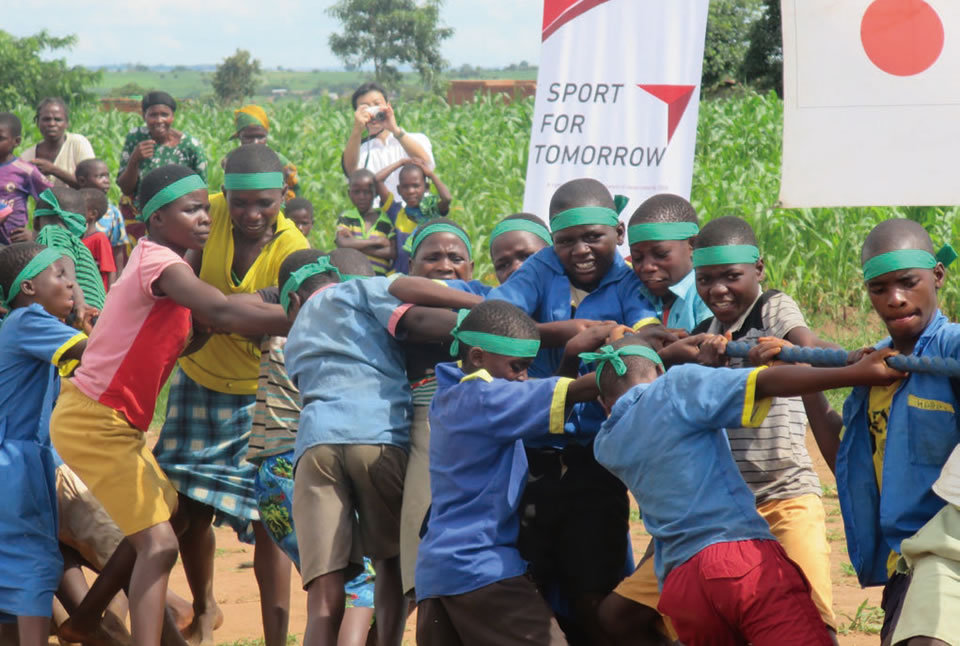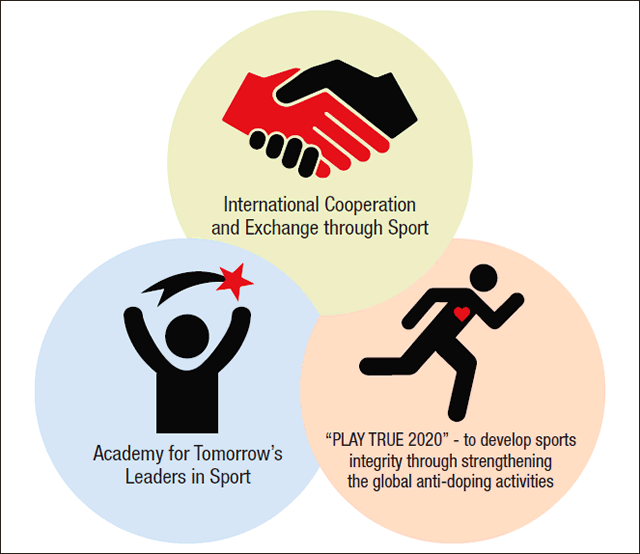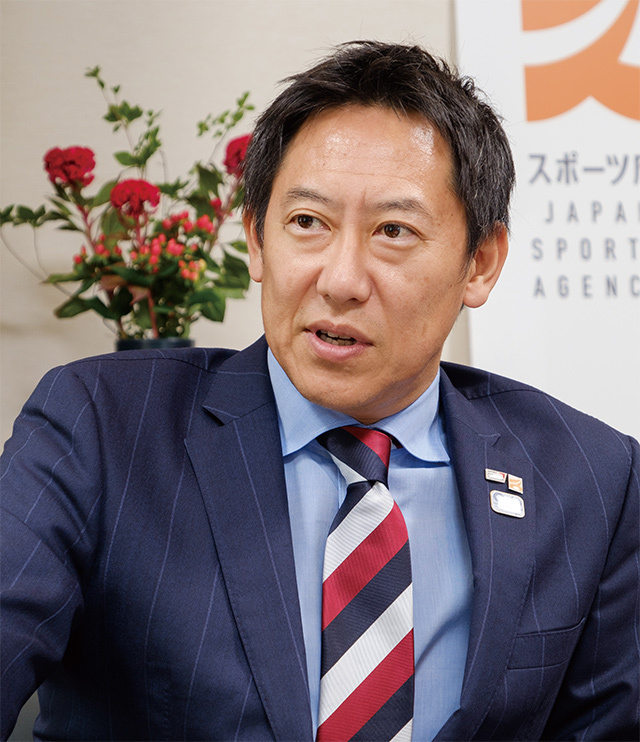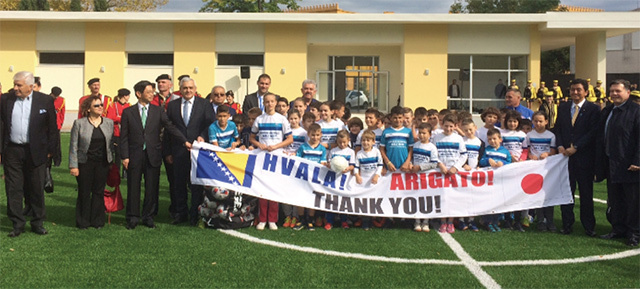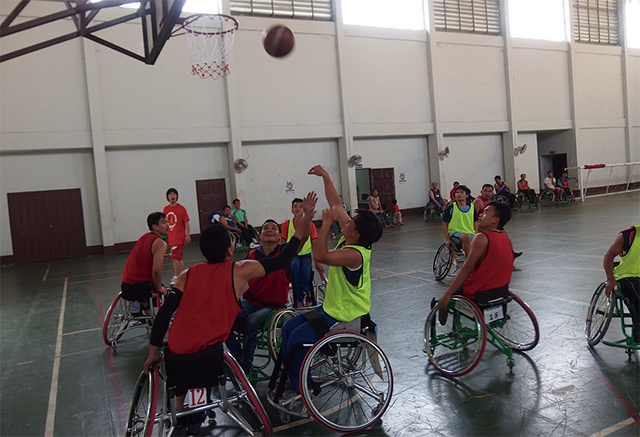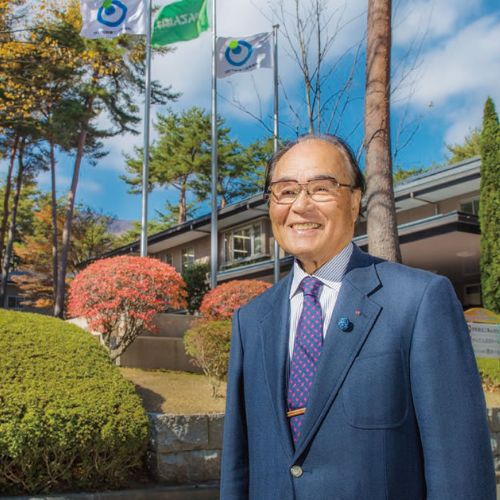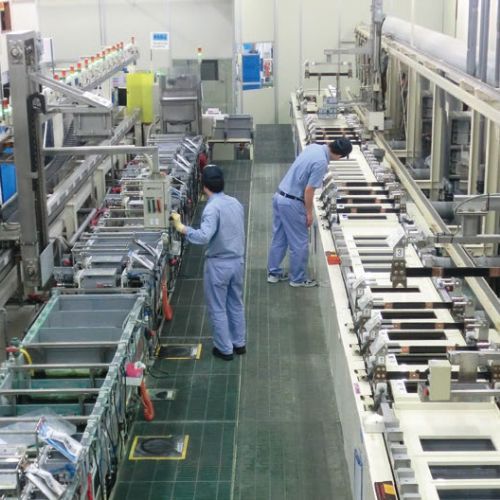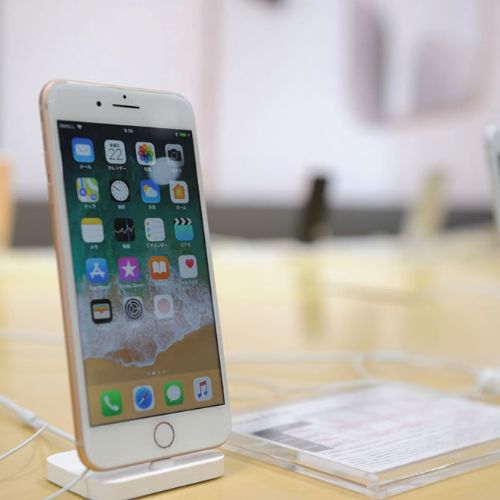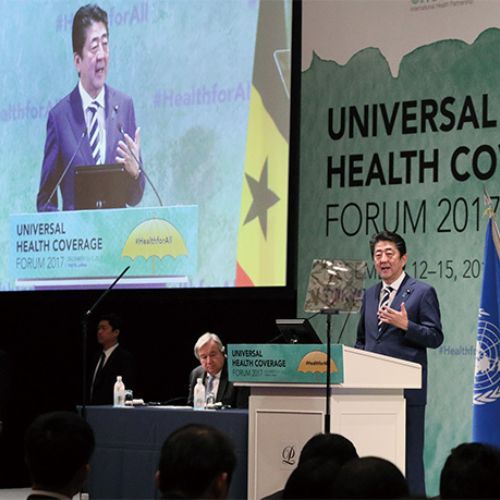Looking toward the Olympic and Paralympic Games Tokyo 2020, Japan is advancing a multitude of programs for international cooperation and exchange through sports. One of these programs is “Sport for Tomorrow” (SFT) which seeks to share the values of sports and the Olympic and Paralympic movement with people of all generations around the world. The Government of Japan is committed to shaping our future through the power of sports with more than 10 million people in over 100 countries in the seven years between 2014 and 2020 through public-private partnerships.
SFT consists of three pillars: 1) International Cooperation and Exchange through Sport, 2) Academy for Tomorrow’s Leaders in Sport, and 3) “PLAY TRUE 2020” to develop sport integrity through strengthening the global anti-doping activities. The SFT Consortium, consisting of organizations that share the values and aims of SFT, has already gained more than 350 members.
SFT is extending international exchange through sports in many ways, such as providing young girls in Kenya with the opportunity to play table tennis, and introducing in Malaysia a well-designed radio calisthenics routine set to music that anyone can perform anytime and anywhere. SFT also provides excellent opportunities to deepen understanding of sports that originated in Japan. For example, judo referees and coaches from ASEAN countries were invited to a seminar to learn the new rules of judo, and lectures and demonstrations of martial arts including judo, karate, aikido, and kendo are being held in countries around the world.
“The words ‘judo’ and ‘kendo’ both contain the kanji character ‘do,’ meaning ‘way’ in Japanese,” explains Daichi Suzuki, Commissioner of the Japan Sports Agency. “Sports in Japan emphasize education, character building, and development of personal discipline. I hope that SFT will help people in other countries experience the kind of Japanese spirit that these sports embody.”
In Bosnia and Herzegovina, SFT supported rehabilitation of the Mostar City Sports Center, which completed in 2016. Mostar was one of the front lines of the armed conflict in Bosnia and Herzegovina from 1992 to 1995. Now, children from the region’s different ethnic groups are able to enjoy sports together. These activities aim to achieve reconciliation in the region through sports.
Suzuki reflects, “Nothing impresses me more than the power that sports have to unite people. As an Olympian, and also through various activities after retiring from competition, I have seen for myself the power of sports to bring people to accept each other even if they did not get along before. I sincerely hope that through SFT, the power of sports will be demonstrated in all corners of the world.”
By expanding this “power of sport,” Japan is connecting people throughout the globe to together build a better tomorrow.
The three pillars of Sport for Tomorrow
Dr. Daichi Suzuki
Commissioner of the Japan Sports Agency. Gold medalist in the 100m backstroke at the Seoul 1988 Olympic Games. Experience abroad as a visiting researcher at Colorado University and a guest coach for Harvard University’s swimming team. Earned a Ph.D. in medicine in 2007. After working as a professor at Juntendo University, a board member of the World Olympians Association, and an executive board member of the Japan Olympic Committee, Suzuki became the first Commissioner of the Japan Sports Agency in 2015.
Tsuneyasu Miyamoto, a former captain of Japan’s national football team, worked to establish the “Mali Most” (Little Bridge) Sports Academy in Bosnia and Herzegovina, where children from the region’s different ethnic groups learn sports together.

























